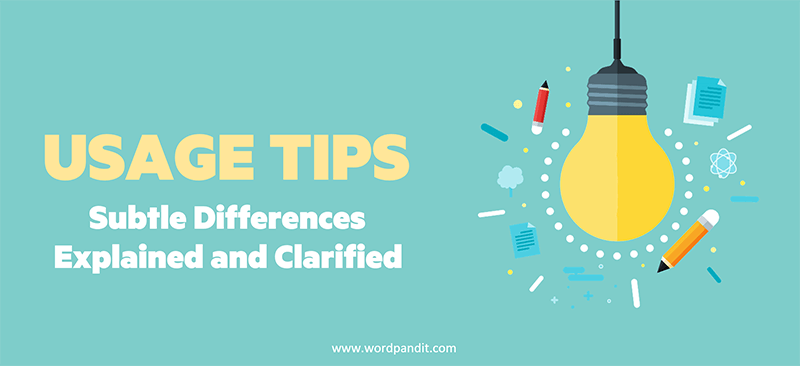Heroin vs. Heroine: Untangling the Confusion 🌟
Have you ever accidentally called a strong, inspiring woman a “heroin”? 🤦♀️ You’re not alone! It’s easy to see why these two words get mixed up—they sound almost identical but mean completely different things. 🔄 Let’s dive into their distinctions so you’ll never confuse them again. By understanding the differences between these words, you’ll not only avoid embarrassing mistakes but also enrich your vocabulary and communication skills.
Heroin 💉
Definition: Heroin is a powerful, illegal drug derived from morphine. It is highly addictive and often associated with serious health and social consequences. ⚠️ Heroin use can lead to severe physical dependency and withdrawal symptoms, making it one of the most dangerous and destructive narcotics available. It is typically sold as a white or brownish powder and is often injected, snorted, or smoked.
Pronunciation: /HER-oh-in/
Etymology: The term “heroin” comes from the German word heroisch, meaning “heroic” or “powerful.” It was originally used in the late 19th century as a brand name for the drug when it was thought to have medicinal benefits. Back then, it was marketed as a non-addictive substitute for morphine and as a cough suppressant, but it quickly became evident that heroin was highly addictive itself.
Usage Examples:
- The government is working to combat heroin addiction in the community.
- Heroin use can lead to severe health complications.
- Many families have been torn apart by heroin addiction, highlighting the need for better addiction treatment programs.
Synonyms & Antonyms:
- Synonyms: Narcotic, opiate, dope
- Antonyms: None (as there is no direct opposite to heroin, only substances with contrasting effects)
Additional Facts: Heroin is classified as a Schedule I controlled substance in many countries, meaning it has no accepted medical use and a high potential for abuse. The illegal heroin trade is a major global issue, contributing to crime, violence, and health crises in many regions.
Heroine 🦸♀️
Definition: A heroine is a woman admired for her courage, outstanding achievements, or noble qualities. She’s the female counterpart of a hero. A heroine can be a character in literature, film, or real life who stands out due to her bravery and impactful actions.
Pronunciation: /HER-oh-een/
Etymology: “Heroine” comes from the Latin heroina, which in turn stems from the Greek hērōinē, meaning “female hero.” The word has been in use for centuries to describe women who inspire others. 🌟 Throughout history, heroines have been celebrated for their contributions to society, from Joan of Arc leading the French army to modern-day activists fighting for justice and equality.
Usage Examples:
- Joan of Arc is remembered as a national heroine of France.
- The movie’s heroine fought bravely to protect her village.
- Malala Yousafzai is considered a heroine for her advocacy of girls’ education despite facing great danger.
Synonyms & Antonyms:
- Synonyms: Champion, idol, protagonist, savior
- Antonyms: Villain, antihero, adversary
Additional Facts: Heroines are often portrayed in stories as role models who face significant challenges and emerge victorious. They embody qualities like selflessness, determination, and courage, making them figures to look up to and emulate.
Spotting the Differences 🔍
While “heroin” and “heroine” sound alike, their meanings are vastly different. ⚖️ One is a dangerous narcotic, and the other is a figure of courage and strength. Imagine the confusion if you called your favorite movie character a “heroin” instead of a “heroine”! Such a mistake could lead to an awkward misunderstanding, so it’s essential to know which word to use and when.
- Heroin: A harmful drug, associated with addiction and health issues.
- Heroine: A woman of courage, a role model, or the lead character in a story.
By paying attention to the context in which these words are used, you can easily avoid confusion. If you are referring to a courageous woman, remember the extra “e” at the end of “heroine.” If discussing drugs, it’s “heroin” without the extra “e.”
Contextual Usage 📚
To help differentiate these words in context:
- “The heroine of the story inspired generations to fight for their rights, while the villain in the subplot became addicted to heroin.”
- “Heroin addiction has devastated many communities, but heroines like social workers are stepping up to make a difference.”
Mnemonic Devices 🧠
A simple way to remember the difference is that “heroine” has an “e” at the end—just like “she”! This makes it easy to link “heroine” to a female hero. Meanwhile, “heroin” doesn’t have that extra “e,” and it’s something you definitely want to avoid. Another helpful tip is to think of “heroine” as someone who saves the day, whereas “heroin” is something you should stay far away from.
Related Confusing Words 🔗
If you found “heroin” and “heroine” confusing, you might also struggle with pairs like “affect” vs. “effect” or “compliment” vs. “complement.” These word pairs are often mixed up due to their similar sounds or spellings. Check out our other articles to master those as well! Learning these distinctions will not only make your writing clearer but also enhance your overall communication skills.
Conclusion 🏁
By now, you should feel more confident distinguishing between “heroin” and “heroine.” Remember, one is a dangerous substance, and the other is someone who inspires courage and admiration. A small spelling difference can mean a world of difference in meaning! Whether you’re writing an essay, giving a speech, or simply having a conversation, knowing the right word to use is key to conveying your message accurately and effectively.
So, the next time you come across these words, pause for a moment and think about their meanings. You wouldn’t want to accidentally praise someone by calling them a harmful drug, would you? 🥴 Keep practicing, and soon enough, distinguishing between “heroin” and “heroine” will become second nature.
Test Your Knowledge: Heroin vs. Heroine Quiz 🎭
1. The movie’s ___ was known for her bravery. ✨
2. Despite his struggles, he vowed never to try ___. 💊 The power of the ___ inspired him to make positive changes. 🌟
3. Heroin is an illegal drug with high addiction potential. 🚫
4. Match the synonym to the correct word:
5. Many young people looked up to the ___ of the story as a role model. 👩🏫
6. Which word refers to a female hero in stories and films? 🎬
7. The detective was on a mission to stop the spread of ___ 💊 while admiring the courage of the ___ he met. 💪
8. Which word originates from the Greek word for ‘demi-god’? 🏛️
9. Heroin can be used to describe a female hero. ❌
10. The ___ in the story fought valiantly against the criminal organization trafficking ___. ⚔️













